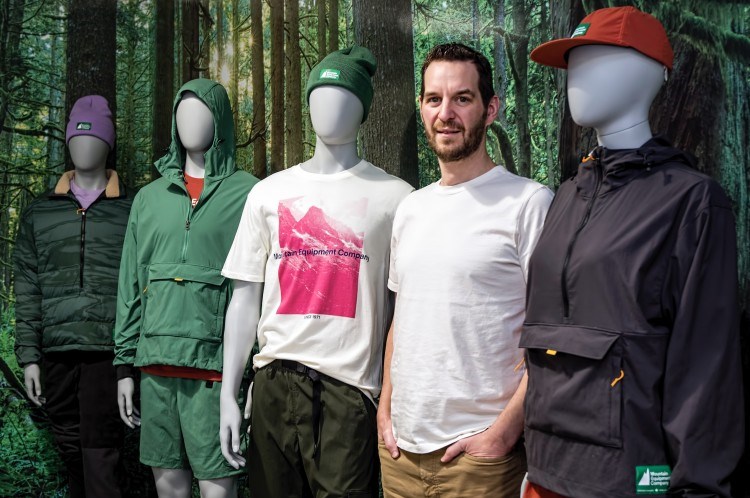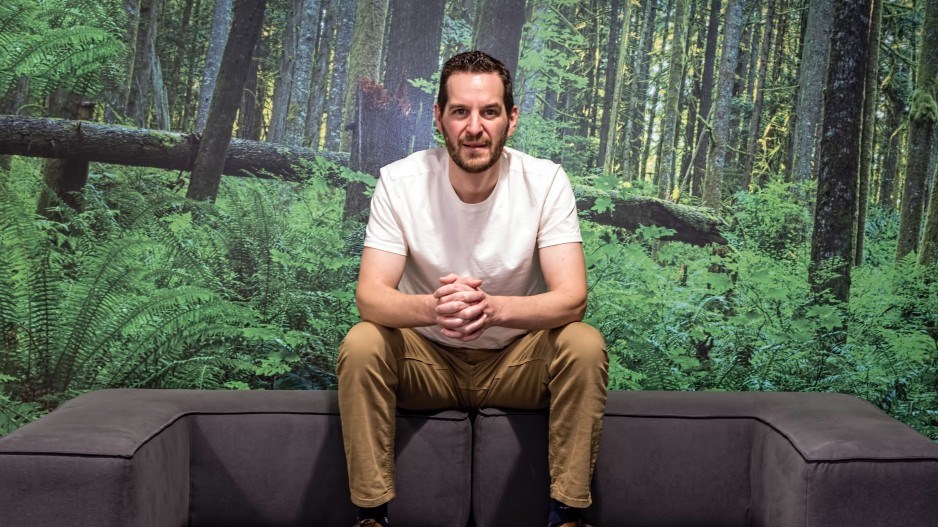Vancouver's Mountain Equipment Co. (MEC) has returned to profitability and plans to double its store count within six years, according to its new CEO, Peter Hlynsky.
The 52-year-old venture's apparent solid footing is in sharp contrast to where it was during the COVID-19 pandemic, when it shifted from being the member-owned, money-losing Mountain Equipment Co-op.
MEC, drowning in red ink, entered creditor protection, forcing its sale to U.S. private investment firm Kingswood Capital Management (KCM).
KCM then brought in Eric Claus as CEO, and Hlynsky as CFO, in November 2020. Claus remains on MEC’s board of directors but left the CEO post last month.
Hlynsky told BIV that his company operates 22 stand-alone stores across the country and three stores within Hudson's Bay Co. (HBC) locations in Toronto.
He plans to open "three to four" stand-alone stores per year, increase the company's stand-alone store count to 40 stores by 2028 and continue to grow.
Hlynsky has no plan to expand his company's partnership with HBC, he said.
"That's aggressive [expansion] given the economic climate, discretionary nature of their product category, the space-availability challenge and the pause on new builds by developers," retail analyst and DIG360 principal David Ian Gray told BIV.
"It signals to me that they are performing very well to their own expectations."
Gray added that Kingswood may want to expand MEC's store count to exact a better price if it were to sell the company.
B.C. stores include Vancouver, North Vancouver, Langley, Kelowna and Victoria.
Within five years, the province is likely to have nine stores, Hlynsky said.
"We hope to have one lease in B.C. signed pretty soon," Hlynsky said. "It's not in Metro Vancouver. It's in a smaller suburb."
Hlynsky said non-urban MEC stores are doing better than ones in cities in part because office workers have yet to fully return to downtown workplaces.
Gray and other retail analysts, such as Retail Insider owner Craig Patterson and M.E. LeBlanc & Co. owner Michael LeBlanc, told BIV that other retailers are also continuing to grapple with the phenomenon of emptier large-city downtown cores.
"In the big cities, you see the numbers," LeBlanc said. "There aren't as many people. There's 50- to 60-per-cent less office-worker traffic. It's a three day a week. Traffic is tough to build. Other retailers are saying, 'I'm seeing my volume move either online or into the 'burbs, but downtowns are a challenge.'"
One thing on MEC’s side, as it navigates its expansion, is that it ranked No. 1 on the University of Victoria’s Gustavson School of Business 2023 Brand Trust Index.
MEC plans to manage money better than it did when it was a co-operative
In 2014, 300 MEC workers started moving into a 112,000-square-foot complex at 1077 Great Northern Way that cost MEC $28 million to build and was seen by some as palatial.
The building was pricy in part because MEC constructed it to the Leadership in Energy and Environmental Design (LEED) Platinum standard, which is the highest level possible in that U.S. Green Building Council-operated program.
MEC soon afterward did a sale-and-leaseback transaction to enable it to access millions of dollars in capital and pay a steady lease rate, Hlynsky said. MEC then in January 2020, just before the pandemic took hold, announced plans to sublease all 112,000 square feet in its then-six-year-old headquarters, and move into a smaller head office – one that turned out to be a stone's throw away, at 887 Great Northern Way.
The 2020 relocation was intended to save the company "maybe $2 million" per year, former CEO Phil Arrata told BIV at the time.
MEC lost $11.5 million in its fiscal year that ended in February 2019 and it followed that up with a $22.7-million loss in the fiscal year that ended in February 2020.
Those numbers made it ill-prepared for the pandemic disruption that followed.
Gray told BIV that he thinks MEC reasoned when it bought the four-acre original Great Northern Way head-office site in 2008 that the move was part of a strategy to better compete for talent, and that a beautiful headquarters might help lure quality executives.
MEC's chief commercial officer Adam Ketcheson was less charitable about the company's motives when he gave a presentation at Retail Council of Canada's Retail West conference in Vancouver Nov. 2.
"MEC was spending money on things that don't matter," he said, adding that MEC's spacious head office was large enough to fit 800 people, when the company only needed 200 head-office workers to function.

Image: MEC chief commercial officer Adam Ketcheson spoke at Retail Council of Canada's Retail West conference in Vancouver Nov. 2 | Glen Korstrom
About 150 workers are now based at the company's head office, Hlynsky told BIV.
"There were $20,000 espresso machines but retail stores weren't allowed to upgrade their printers in order to print new signage," Ketcheson said in his presentation to outline some previous misplaced priorities.
Hlynsky told BIV that he would not comment on specific decisions previous CEOs made, but he sounded like he wants to instil a culture of financial discipline.
"There was a lot of spending done on things that were outside the core of the business – be that the cost of building new stores, the cost of head office leases and things like that," he said.
"Our view now is that we want to basically be able to be a business that can put the money into the product, and into the people and then use that to ensure that we can have the best prices and still be profitable."
When MEC opened a 25,000-square-foot store in Moncton, New Brunswick in August, it took over a former Bed, Bath and Beyond location and did not spend lavishly to remake the facility.
"From a sustainability perspective, it's better to take a box that's existing, and make minor modifications to it, as opposed to taking a box, breaking it down and trying to build it up again, or building from scratch," Hlynsky said.
"Across Canada there's a number of boxes that need to be repurposed, so we try to find those locations."

Image: MEC CEO Peter Hlynsky stands between mannequins that are wearing MEC clothing | Chung Chow
Other key things Hlynsky said he looks for in potential future store sites is that the location is in an area where there is population growth, and outdoor activities are nearby.
Executives at Vancouver-based retailers, such as Indochino and John Fluevog Shoes, have told BIV that when they look to open new stores, they prioritize cities where their e-commerce sales are strong.
Hlynsky said he does not use e-commerce data for that purpose and Patterson said that might be wise.
"Population-growth numbers are also data," Patterson said. "It's not data from the shoppers in that area currently, but MEC may be assuming that they could convert those people into customers."
Hlynsky estimated that about 30 per cent of MEC's sales are e-commerce transactions – a percentage that Patterson, Gray and LeBlanc told BIV they thought was impressively high and better than many retailers.
Hlynsky said he expects MEC's e-commerce share of sales to increase by "one to two" percentage points per year in part because the company is investing in that sales channel.
New stores will help too.
"When you open a new store, you actually grow e-commerce in that market because people now know they can return products to your store," he said. "It's kind of counterintuitive. A lot of times you think you have a lot of e-commerce in a market, and it might dissuade you from opening a new store, because you think it's going to cannibalize that e-commerce. We actually find that e-commerce grows in a market when we have a store."




